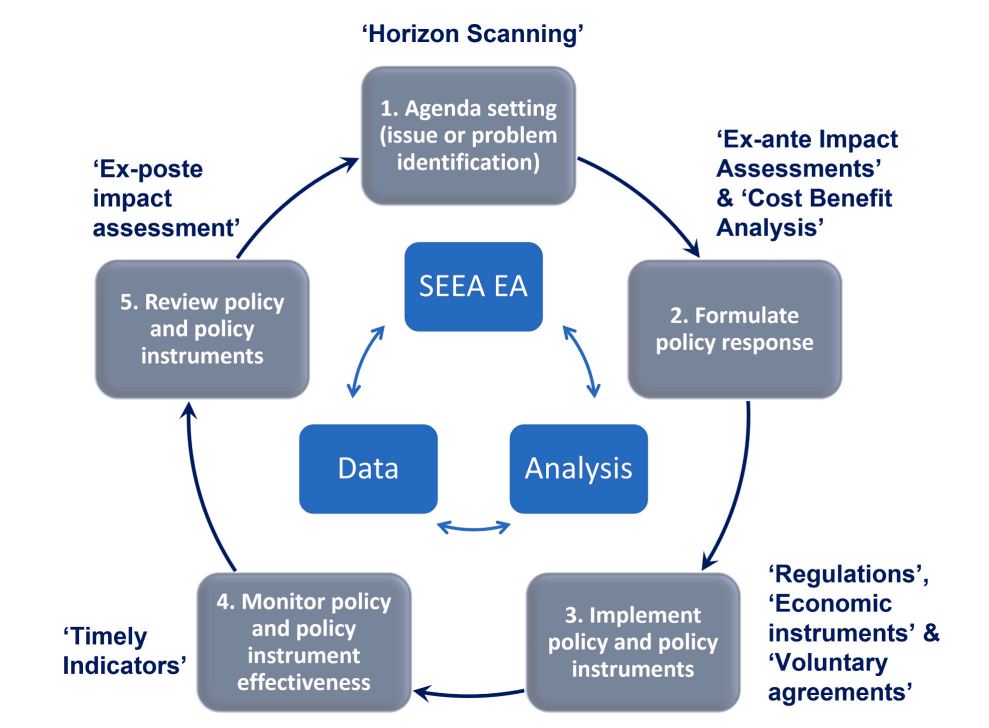February 01, 2024 | Environmental Science & Technology | Source |
Introduction: Ensuring effective policy-making requires robust scientific knowledge and reliable environmental data. However, challenges such as biased monitoring programs and inaccessible evidence hinder evidence-based decision-making. The System of Environmental-Economic Accounting (SEEA) addresses these issues by providing consistent data on environmental resources and ecosystem services. The international resarch team led by UN Environment Programme World Conservation Monitoring Centre explores SEEA Environmental Accounting (EA)'s role in delivering policy-relevant evidence, focusing on forest ecosystems.
Key findings: Through case studies examining the EU Green Deal and Liberia's forest policy framework, the paper identifies evidence gaps that the SEEA EA can address. For instance, in the EU Green Deal, gaps in forest management evidence include old growth forest extent, carbon storage, and biodiversity. Similarly, in Liberia, evidence needs pertain to forest extent, timber provisioning, and non-wood forest products. The paper emphasizes starting from a policy perspective to tailor SEEA EA accounts to meet specific evidence needs, ensuring their relevance in decision-making processes. Additionally, it underscores the importance of spatially explicit ecosystem accounts and coordination across sectors and institutions for successful policy outcomes. Finally, the paper discusses how the SEEA EA can complement existing frameworks for environmental monitoring and reporting, enhancing alignment and mainstreaming forest-related information across various policy domains.
Figure | Role of the SEEA EA in contributing evidence across the five stages of the policy-cycle.





